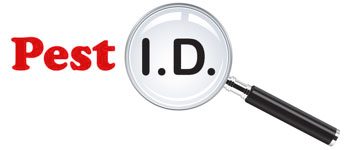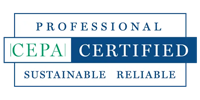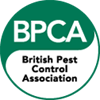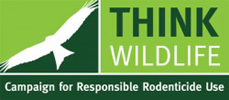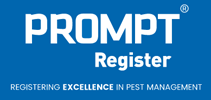Firstly, what is a pest?
Animals are described as pests when they:
- threaten public health
- cause loss of goodwill
- become a nuisance through bites & stings
- cause damage through gnawing or eating
Pest ID follows all Codes of Best Practices as set out by the BPCA (British Pest Control Association) including the latest guidelines for CRRU (Campaign for Responsible Rodenticide Use), where the utmost importance is given to the environmental issues when eradicating sites of pests and consideration for non-target species is of equal importance. Gone are the days where pest controllers indiscriminately lay down poisons all year round with killing as their number one priority. The entire industry is currently being retrained to adopt a more responsible and effective process for managing pests – failure will mean new legislation that could have catastrophic effects on the battle against unwanted pests.
There are several pieces of legislation that deal with pests and pest prevention and each industry is governed by its own set of health, safety and hygiene rules. They affect businesses whether they handle food or not, and Pest ID can help you comply with the law. The treatments and advice that we provide are to help prevent the risk of prosecution, working safely to minimise the risks to your business.
The legislation listed below is enforced by agencies such as Environmental Health departments of Local Authorities and the Health and Safety Executive.
If you do not comply with these pieces of legislation you may receive substantial penalties, according to the offence committed.
Key legislation
Prevention of Damage by Pests Act
If a pest is present in a business that is involved in the storage, manufacture, transport, or sale of food, the owner must take steps to control the infestation or notify the Local Authority. Penalties include:
- notice to improve the business
- recovery of expenses incurred by the Local Authority from the business owners
Food Safety Act
Businesses or organisations that are involved in the manufacturing, processing, storage, distribution, preparation, packaging or the selling of food must ensure that food is fit for human consumption. It is an offence to supply, sell, advertise or be in possession of food that is not.
Food premises must be kept in good condition, clean and free from rubbish that may attract pests. Food and food products must be prevented from being damaged or contaminated by pests. Penalties include:
- improvement notices
- prohibition orders to close premises
- seizure of unfit food
- disqualification from catering for up to two years
- fines of up to £5,000 and a six months prison sentence for each offence, or if a major offence, fines of up to £20,000
- in Crown Courts, unlimited fines and up to two years imprisonment
Food Safety (General Food Hygiene) Regulations
This Act states that food must not be contaminated by any pest species and food premises should have suitable controls in place to do this. They should protect food against external sources of pests and must also avoid harbouring pests within their premises.
Refuse stores should be designed and constructed to prevent pests from gaining access and windows in food preparation, processing or treatment rooms must, where necessary, be fitted with insect-proof screens. Penalties include those as described under the Food Safety Act above.
Health and Safety at Work etc. Act (Including Control of Substances Hazardous to Health Regulations)
Employers must take the necessary measures to secure the health, safety and welfare of employees and other people, to avoid, for example, pathogenic diseases carried by pests, slippery conditions caused by bird droppings, bites from fleas and contamination of food by pests. Penalties include:
- improvement notices
- prohibition notices
- maximum penalty of two years imprisonment plus unlimited fines
C.O.S.H.H – (Control of Substances Hazardous to Health Regulations)
These Regulations, made under the Health and Safety at Work etc. Act are designed to protect people from harmful substances that they may encounter at work. Each time our technicians visit your premises, they complete a Pest Prevention report which lists the substances which have been used, in order to minimise the risks that accompany the use of pesticides.
A Schedule of Pesticides is also present in the Pest Prevention Folders that we provide to our contract customers, which gives further details on these substances. Safety data sheets are also available on request. Pest ID technicians are trained and equipped to apply pesticides correctly and safely. All the pesticides that we use are approved by the Control of Pesticides Regulations and treatments are made in the appropriate places where they will be most effective.
Other Acts include:
- The Local Authorities Act
- Protection of Animals Act
At Pest ID, we pride ourselves on our complete discretion on all our pest control jobs. Therefore all our vehicles are unmarked, unlike major organisations.
